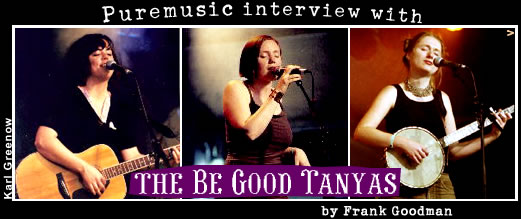
When I was a diehard folkie in the late 60s and early 70s, learning country blues and ragtime on guitar and old-timey on banjo and some fiddle, the rule and the rage was to emulate the classics and the masters as closely and authentically as possible. In some cases one would learn from the seminal artists, but I more often enjoyed learning from the best of the modern day interpreters. I learned some country blues from Ry Cooder and Stefan Grossman, banjo from Mike Seeger, ragtime from Eric Schoenberg, and a long list of others... For one thing, the records of the interpreters sounded a helluva lot better. I loved listening to the piano bounce of Blind Arthur Blake's guitar playing from the 20s and to hear him rapping along with his rags, but those recordings would wear me out.
The purist mindset and movement was alive and well back then, I didn't hear many people making their own version of those styles. Sure, singer songwriters were writing blues songs with their own lyrics, but that's something different. Anyhow, the purists don't rule anymore, and I'm glad. Gillian Welch and David Rawlings, after near perfecting the bluegrass and Appalachian duo sound, completely reinvented themselves on their most recent record. (One of these days, we will get an interview with them, we're patiently waiting.) Likewise, the Be Good Tanyas and many other cool combos have modernized, urbanized, and otherwise reinvented the old-timey sound. The world went upside down to the tune of O Brother, and suddenly massive quantities of people are listening to old-timey music and bluegrass as if they'd been doing it all along. Good, suits the hell outta me. If some readers are not acquainted with the term old-timey, you can substitute the notion of hillbilly music, pre-Bluegrass (which was more or less invented by Bill Monroe). After years of talking about it, I finally bought an old-time banjo over Christmas myself, not having had one for almost 20 years. (Check out the amazing Bart Reiter banjos from Elderly Instruments.)
Although the music of the glorious trio called the Be Good Tanyas is heavily influenced by the old-timey tradition, many other influences are present. They are British Columbia women, well traveled, and worldly. Refined renegades, gypsies, that's how they struck me when I met them at their show in Nashville recently. Why they were playing the Slow Bar on the East side at 6:45 is still a small mystery, but there were many of us there to witness their captivating and original sound.
I asked Trish Klein, who handled most of the interview from the conference room of Nettwerk Records in L.A., how she accounts for the way that the group seems to be catching on, considering the music scene at large. You'll read her modest answer in a minute. My take on it is that the BGTs have something elusive but infectious going on in the vocals and the songs themselves, it's a joyful noise going down. And I believe it's got a whole lot to do with the personal chemistry, how the women get on. There's a funky, loveable sisterhood vibe that has an intriguing, contagious effect on the empathetic listener. Be awfully sure to check out their clips on our Listen page. We regret that Samantha Parton was not available at interview time, but Trish Klein and Frazey Ford graciously fielded our many questions. Join us. continue to interview
 |
|||||||
 |
 |
||||||
 |
 |
||||||